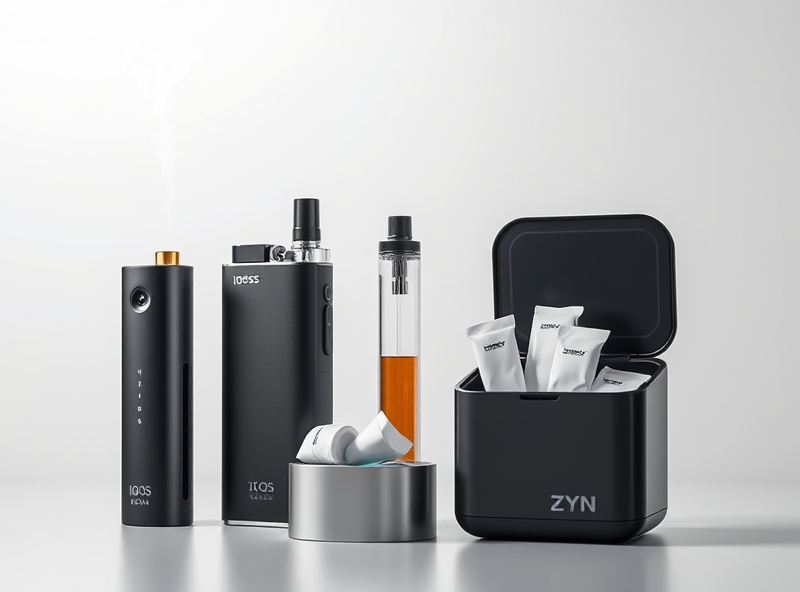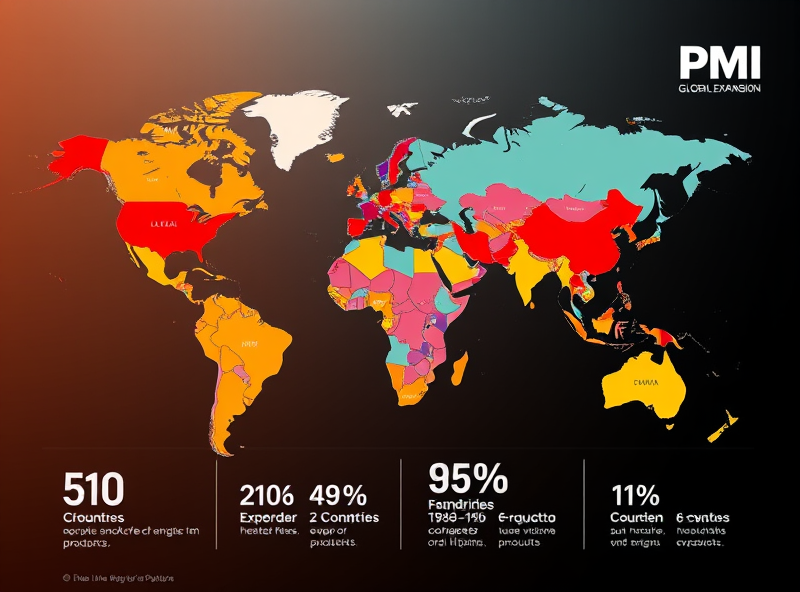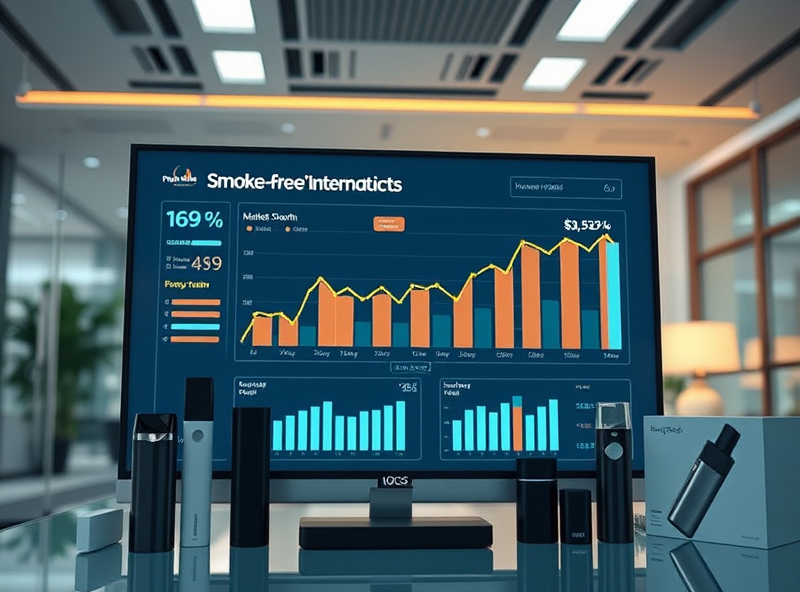
Philip Morris Smoke-Free Future: Products, Markets & Challenges
Innovative Smoke-Free Portfolio: Heated, E-Vapor & Oral Products

Philip Morris International (PMI) is transforming the tobacco industry with its commitment to a smoke-free future. At the heart of this transformation is an innovative portfolio of smoke-free products designed to reduce the harm associated with traditional smoking. These alternatives include heated tobacco products, e-vapor devices, and oral nicotine pouches—each offering a distinct experience while aiming to eliminate combustion, the primary cause of smoking-related diseases.
Heated tobacco products, such as IQOS, warm tobacco just enough to release a flavorful nicotine-containing vapor without burning it. This significantly reduces the levels of harmful chemicals compared to cigarette smoke. E-vapor products, like VEEV, use e-liquids to generate vapor and are popular among adult smokers seeking a less harmful alternative. Oral nicotine products, including ZYN, offer a smoke-free and spit-free option, appealing to users looking for discreet consumption.
These products are supported by extensive scientific research and regulatory engagement. PMI has invested over $10.5 billion in R&D and manufacturing capacity for smoke-free products, demonstrating a long-term commitment to innovation and public health. While these alternatives are not risk-free, they are considered a better choice for adult smokers who would otherwise continue smoking.
As more countries explore tobacco harm reduction strategies, PMI’s portfolio is playing a pivotal role in shaping global market trends and public health policies. For consumers, these innovations offer a pathway to reduce health risks and make more informed lifestyle choices.
For more information, you can visit PMI’s official site: https://www.pmi.com/smoke-free-products
Global Expansion & Market Penetration: 95 Countries & Counting

Philip Morris International (PMI) is steadily transforming its business model with a bold vision: to deliver a smoke-free future. As part of this mission, PMI has expanded its smoke-free product portfolio—such as IQOS heated tobacco systems and nicotine pouches—into 95 countries and counting. This global expansion is not just about growth; it’s about changing the way the world consumes nicotine in a less harmful way.
PMI’s strategic market penetration focuses on countries with high smoking prevalence and supportive regulatory environments. By investing in science-backed alternatives and engaging with public health stakeholders, PMI aims to reduce the harm caused by traditional cigarettes. In markets like Japan and Italy, IQOS has already replaced a significant portion of cigarette consumption, showing the potential of these products to shift consumer behavior.
However, the path is not without challenges. Regulatory hurdles, public skepticism, and misinformation remain significant barriers. PMI addresses these by publishing transparent scientific research and collaborating with governments to shape responsible policies. For consumers, this means more access to potentially less harmful alternatives and the empowerment to make informed choices about their health.
As PMI continues to scale its smoke-free portfolio globally, it offers a unique case study in how innovation, regulation, and consumer demand can align to create meaningful public health outcomes.
For more information, visit the official PMI smoke-free vision page: https://www.pmi.com/smoke-free-life
Financial Growth in the Smoke-Free Sector: Revenue & ROI

As Philip Morris International (PMI) continues its transformation toward a smoke-free future, one of the most compelling aspects for investors and industry observers is the financial performance of its smoke-free product portfolio. PMI’s strategic pivot from traditional cigarettes to reduced-risk products (RRPs) such as heated tobacco, e-vapor, and oral nicotine has not only reshaped its brand identity but also significantly influenced its revenue streams and return on investment (ROI).
Since the launch of IQOS, PMI’s flagship heated tobacco product, the company has reported consistent growth in its smoke-free category. As of 2023, over 35% of PMI’s total net revenues came from smoke-free products, and the company aims to increase this to over 50% by 2025. This shift is supported by strong consumer adoption, especially in markets like Japan and parts of Europe, where smoke-free alternatives have gained significant traction.
From a financial perspective, smoke-free products offer higher margins compared to traditional cigarettes due to premium pricing and lower production costs over time. Moreover, the recurring revenue model—where users regularly purchase consumables like tobacco sticks or e-liquid pods—enhances long-term profitability. PMI has also reported improved ROI in markets where regulatory frameworks support harm reduction and innovation.
Investors should also note the reduced litigation risk and reputational benefits associated with smoke-free products, which can positively impact stock valuation. PMI’s ongoing investments in R&D and digital platforms further position the company for scalable growth in this sector.
For those tracking the future of tobacco and nicotine markets, PMI’s financial evolution in the smoke-free sector is a case study in successful corporate transformation and sustainable profitability.
Source: https://www.pmi.com/investor-relations
Challenges Ahead: Regulation, Perception, and Future Goals

As Philip Morris International (PMI) continues its transition toward a smoke-free future, the road ahead is paved with both promise and complexity. The company’s bold vision to replace cigarettes with reduced-risk alternatives such as heated tobacco products (HTPs) and e-vapor devices has gained momentum globally. However, several key challenges remain that could significantly influence the pace and success of this transformation.
One of the most pressing challenges is regulatory uncertainty. Smoke-free products often fall into a gray area of legislation, varying widely across countries. While some governments have embraced harm reduction strategies, others maintain strict regulations that can hinder innovation and consumer access. PMI must navigate this patchwork of policies, advocating for science-based regulation that distinguishes between combustible and non-combustible products. For example, the U.S. FDA has authorized certain IQOS products through its Modified Risk Tobacco Product (MRTP) pathway, recognizing their potential to reduce exposure to harmful chemicals compared to traditional cigarettes ([FDA.gov](https://www.fda.gov/news-events/press-announcements/fda-authorizes-marketing-iqos-tobacco-heating-system-new-tobacco-product)).
Public perception is another significant hurdle. Despite scientific backing, many consumers and public health stakeholders remain skeptical about the safety and efficacy of smoke-free alternatives. Misconceptions and misinformation can slow adoption rates and erode trust. To address this, PMI must invest in transparent communication, third-party research collaborations, and education campaigns that empower consumers to make informed choices.
Lastly, PMI’s future goals extend beyond product innovation. The company aims to achieve a net-positive impact on public health, which requires a long-term commitment to sustainability, ethical marketing, and corporate accountability. This includes phasing out cigarettes entirely in markets where smoke-free alternatives are viable and ensuring that these products do not appeal to non-smokers or youth.
For consumers, understanding these challenges is crucial. It helps frame the broader context of tobacco harm reduction and encourages informed dialogue about public health, regulation, and innovation. As PMI and other companies push forward, the balance between opportunity and responsibility will define the next chapter of the smoke-free movement.






